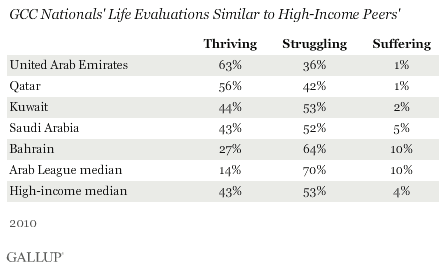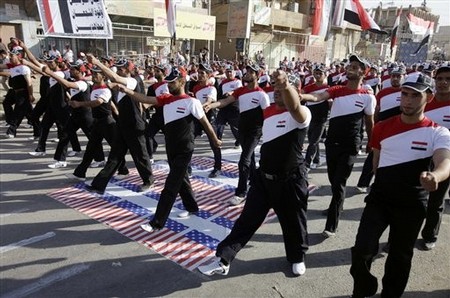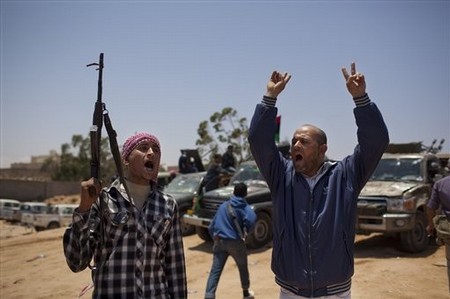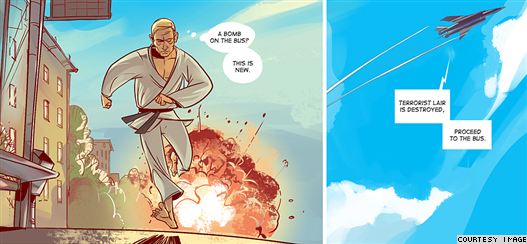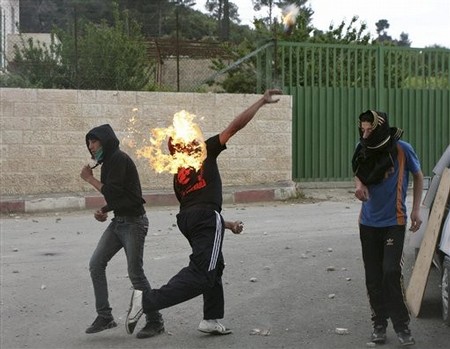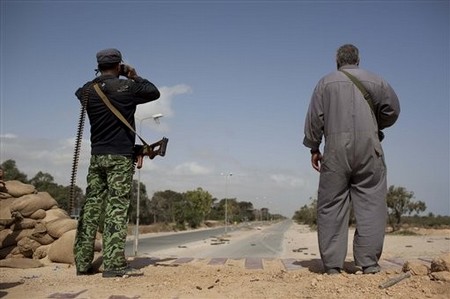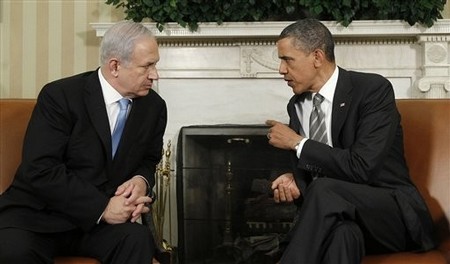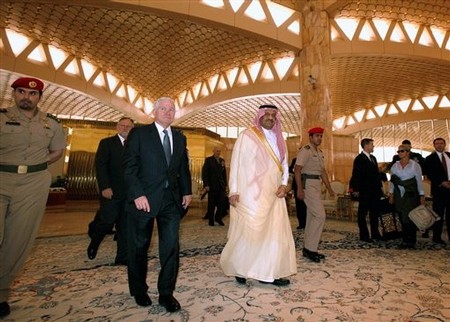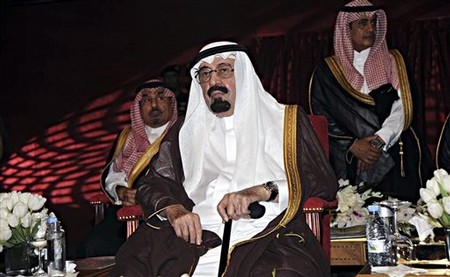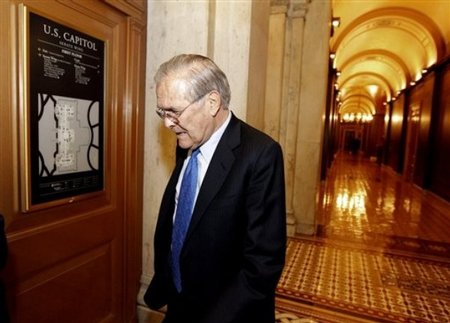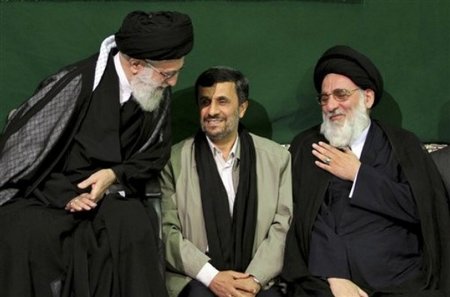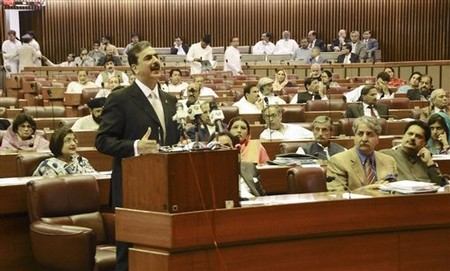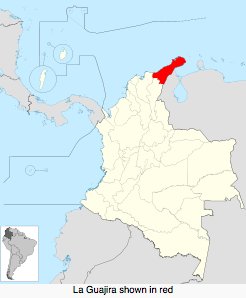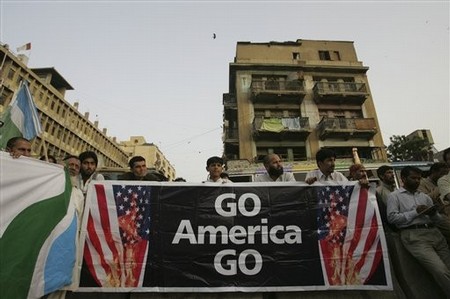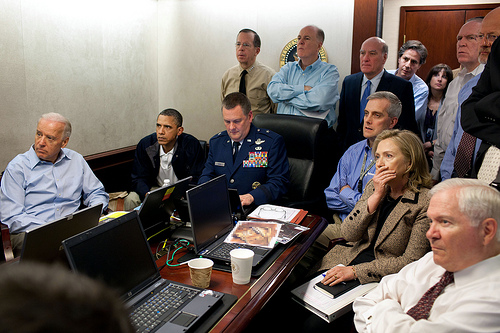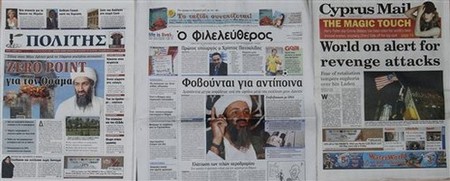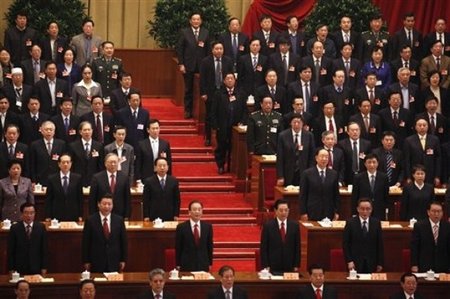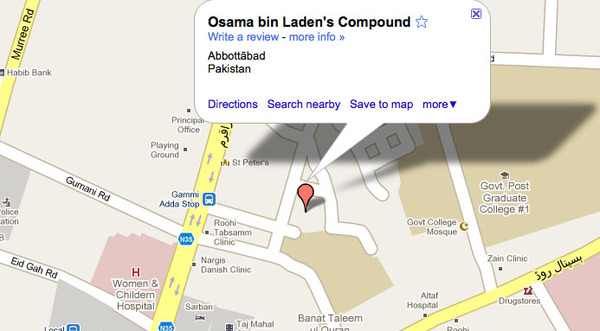In time, Osama Bin Laden will be remembered as a villain who systematically murdered thousands of innocents in an attempt to destroy the civilization he despised and break the spirit of a nation he hated. Now he is dead, in a firefight after some time spent hiding out in a mansion in Abbottabad, Pakistan. He died likely knowing the truth: that in his grand mission, he failed. The nation did not crumble; the people did not despair; and the Muslim world did not unite in a global war against the West.
There's little question that the decisions Barack Obama has made as president played a major role in bringing us to this point. As a candidate, Obama said a great many things which gave those concerned with national security pause - particularly his promises to close Gitmo, to scale back interrogation policies advanced under President Bush and, of course, his entire candidacy was in large part motivated by his strong words against continued involvement in Iraq.
Whatever you may think of Obama's domestic policies or diplomatic decisions, his approach to national security has been largely wise and overwhelmingly vindicated thus far. His reconsideration of the promise to shut down Gitmo, his shifting of the trial of Khalid Sheikh Mohammed back to a military tribunal and his reliance on several key personnel under George W. Bush who may disagree (and indeed have disagreed publicly) with him on other matters - Secretary of Defense Robert Gates and Gen. David Petraeus chief among these, but hardly alone - have projected a far more stable, responsible and moderate national security approach.
This has not come without cost, mostly from Obama's left flank, where many of his supporters have criticized him for going back on his word. But it's now reported that the bin Laden raid began with the interrogation of a detainee roughly four years ago, and the CIA continued to follow this lead under Obama, in August discovering a compound which stood out in its neighborhood for a number of startling reasons. Phil Klein reports on the White House briefing:
Two years ago, intelligence officials began to identify areas of Pakistan where the courier and his brother operated, and the great security precautions the two men took aroused U.S. suspicions.
Last August, intelligence officials tracked the men to their residence in Abbottabad, Pakistan, a relatively wealthy town 35 miles north of Islamabad where many retired military officers live.
“When we saw the compound where the brothers lived, we were shocked by what we saw,” a senior administration official said.
The compound was eight times larger than any other home in the area. It was surrounded by walls measuring 12 feet to 18 feet that were topped with barbed wire. There were additional inner walls that sectioned off parts of the compound and entry was restricted by two security gates. And the residents burned their trash instead of leaving it outside for pickup. There was a three-story house on the site, with a 7-foot privacy wall on the top floor.
While the two brothers, the couriers, had no known source of income, the compound was built in 2005 and valued at $1 million. That led intelligence officials to conclude that it must have been built to hold a high-value member of Al Qaeda.
Further intelligence gathering found that there was another family who lived on the compound which had a size and makeup that matched the bin Laden members who would have most likely been with Osama.
After exploring every angle for months, they concluded that all signs pointed to this being bin Laden’s residence.
President Obama was made aware of the compound when it was discovered last year. By mid-February, the intelligence was solid and since mid-March, Obama led five meetings with the National Security Council regarding the issue.
Intelligence officials worked with the U.S. military to plan the operation and a small team accepted the risk and began to train for it.
On April 29, this past Friday, Obama gave the final go ahead.
There was a key decision to be made during this process, and it wasn't the go-ahead (which seems rather obvious given the nature of the information). Given Obama's frequently expressed tendency to favor broad-based global partnerships, he had to decide whether to include other nations in the background on this approach - particularly Pakistan. Without advance warning, the potential for an embarrassing international incident was higher, but by sharing this information, Obama could have destroyed the entire effort through inevitable leaks, stalling or international disagreements.
Instead, "No other country, not even Pakistan, was informed of any of this intelligence until after the raid to protect operational security." The intel stayed secret. The operation stayed locked down. And the Navy Seals got their man.
While cooperation is not always a bad thing, in this case Obama chose to go it alone. It was the right choice, and he should be applauded for it.
One final note on bin Laden's passing: it's impossible for any reasonable person to begrudge anyone who rejoices in the vengeance of this moment, when a villainous man who embraced death as a mission is embraced by it, with the assistance of brave Americans whose names we'll likely never know. But the mission to capture or kill bin Laden was always about more than vengeance; about more than avenging the blood that cries out from the ground. It was about the fact that America is not satisfied simply to endure. Rather, we are prepared to do whatever it takes to destroy those who threaten us, and to ensure our children will grow up to live in a just, free and decent world.
Alone, bin Laden's death will not bring that about. But it is a powerful symbol, and a vindication of several difficult choices President Obama and President Bush made, often risking their own political capital on what they believed to be right.

